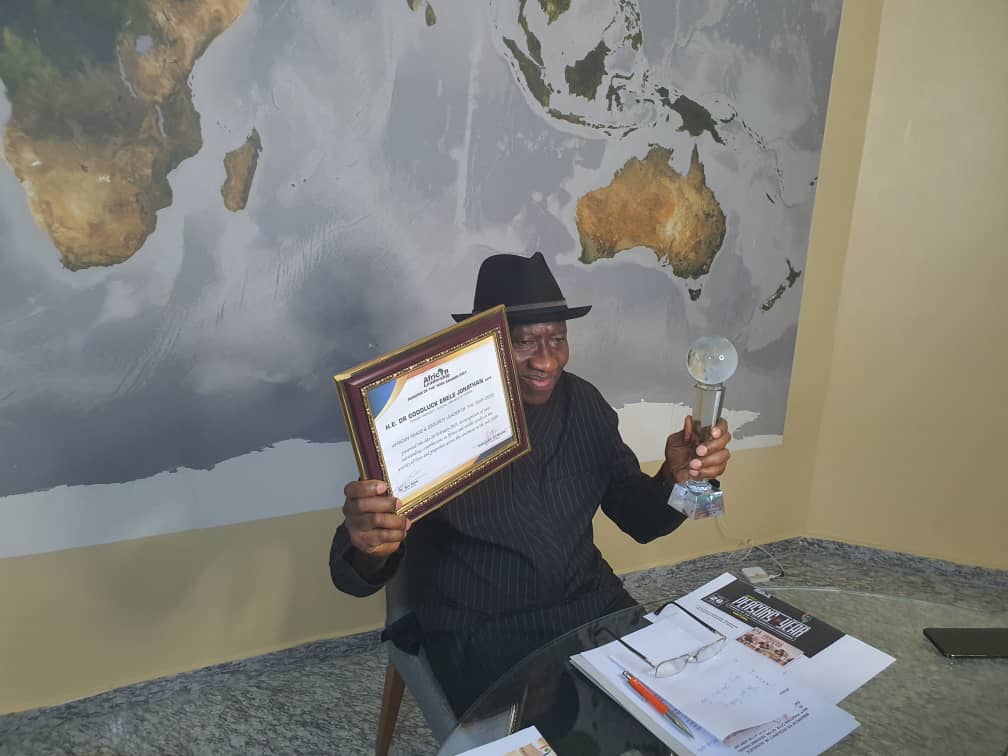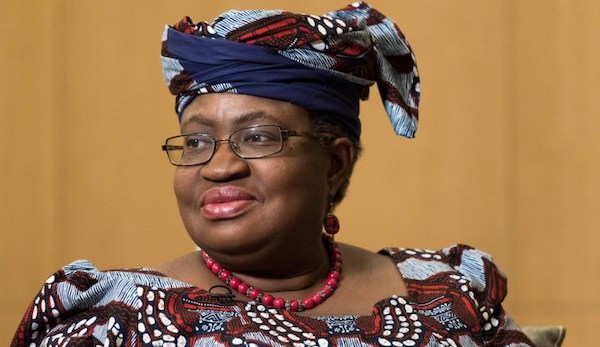By Alkali Amana
The Director-General of the World Health Organization (WHO), Dr. Tedros Adhanom Ghebreyesus, has been awarded the Prestigious African of the Year 2020 Award by African Leadership Magazine, the continent’s leading publication on leadership, business and investment, at the recently concluded African Persons of the Year presentation ceremony which held on the 26th of February 2021.
The award which was presented to him by the Chairman and Publisher of the Magazine, Dr. Ken Giami, celebrates the outstanding achievements and contributions of African individuals who have represented the continent in a positive light and in no small measure in a particular year.
During his remarks, Dr. Giami that: “The response to what has been the most challenging period in our recent history has been phenomenal, and we are so excited that it is an African who has led the charge. Dr. Tedros, we are truly proud of you as Africans, … we are very proud of what you have done”.
In receiving the award, the DG WHO said: “As a proud son of Africa, I am deeply humbled to accept this award. I express my thanks to African Leadership Magazine and its readers for their support. I would also like to acknowledge and thank last year’s winner Dr. Adesina, my good friend, the President of the African Development Bank (AfDB), and thank you for your kind words of congratulations my brother. I do not accept this award only on my own behalf, but on behalf of my colleagues who work every day, sometimes in difficult and dangerous situations to protect and promote the health of Africa’s people and the world”.
Taking over as the African Person of the Year from the previous winner (Dr. Akinwumi Adesina, President AfDB), Dr. Tedros’ commendable efforts through active leadership in the fight against the COVID19 pandemic has earned him global recognitions including the most recent ALM African of the Year, joining an illustrious list of annual awardees who are recognized in various categories by the magazine.
Other Leaders that participated at the event include His Excellency, Nana Akufo Addo, President of the Republic of Ghana; Her Excellency, Dr Goodluck Jonathan, Former President of the Federal Republic of Nigeria; His Excellency, Dr Ernest Bai Koroma, Former President of the Republic of Sierra Leone; Her Excellency Mrs Graca Machel of the GMT Trust; Hon. Samuel D Tweah, Minister for Finance Liberia; Honourable Manqoba Khumalo; Minister for Commerce and Trade, Kingdom of Eswatini, and many more..
See Full Details of his Remarks Below:
Your Excellency Nana Akufo Addo, President of Ghana,
Your Excellency Dr Goodluck Jonathan, former President of Nigeria,
Your Excellency Dr Ernest Bai Koroma, former President of Sierra Leone,
Your Excellency Graça Machel,
Honourable Senator Manqoba Khumalo, Minister of Commerce, Trade and Industry of the Kingdom of Eswatini,
Honourable Samuel D. Tweah, Minister of Finance and Economic Development of Liberia,
Dr John Nkengasong, Director-General of the Africa CDC,
Dr Ken Giami, Chairman and Publisher, African Leadership Magazine,
Distinguished guests, my dear brothers and sisters,
As a proud son of Africa, I am deeply humbled to accept this award.
I express my thanks to African Leadership Magazine and its readers for their support.
I would also like to acknowledge and thank last year’s winner, Dr Akinwumi Adesina, the President of the African Development Bank, and thank you for your kind words of congratulations, my brother.
I do not accept this award only on my own behalf, but on behalf of my colleagues at WHO, who work every day, sometimes in difficult and dangerous situations, to protect and promote the health of Africa’s people, and the world’s.
That has never been more important than in the past year.
The COVID-19 pandemic has highlighted many of Africa’s strengths and vulnerabilities.
When COVID-19 first emerged more than a year ago, we were deeply concerned about its potential impact in Africa, and other regions with weaker health systems.
Regional solidarity has been a vital part of the response, and I would like to acknowledge the leadership of President Ramaphosa and Mouusa Faki in developing the continental strategy against COVID-19 in Africa, and for bringing together a coalition of political and business leaders.
So far, more than 3.8 million cases have been reported from African Union countries, and we have lost more than 100 thousand of our brothers and sisters.
We know that the real numbers are almost certainly higher.
But we also know that our continent’s relatively young population means Africa has not seen the same scale of severe disease and death as other regions with older populations.
Africa’s long experience in applying public health measures to respond to infectious disease outbreaks has also helped.
Since the beginning of the pandemic, WHO has been working day and night to ensure equitable access to vaccines, diagnostics and therapeutics for COVID-19.
Last January, only two countries in Africa had PCR testing capacity for COVID-19. By the end of February, we expanded that to 32 countries, and to all countries by mid-June.
Since then, we have shipped millions of test kits to Africa, tons of personal protective equipment, oxygen concentrators, dexamethasone and other essential supplies.
The approval of safe and effective vaccines is now giving us all hope of bringing the pandemic under control.
So far, more than 200 million doses of vaccine have been administered, but half of those doses are in just two countries, and more than 80% are in 10 countries.
WHO and our partners are working urgently to ensure vaccines are distributed to all countries as quickly as possible.
This week, Ghana became the first country outside India to receive vaccines for COVID-19 through the COVAX Facility.
And just a few hours ago, more doses arrived in Côte d’Ivoire. We expect more African countries to receive doses next week, and in the coming weeks.
Vaccines are a powerful tool, but we must remember they are not the only tool.
Vaccines complement, but do not replace, the other public health measures that countries in Africa have used to successfully prevent or control widespread transmission.
Even as we rollout vaccines, testing, contact tracing, isolation, supported quarantine and quality care remain important.
And so do individual measures, like physical distancing, avoiding crowds, hand hygiene, masks and ventilation.
Vaccines will help to bring the pandemic under control, but we will still be left with many of the same challenges we had before.
There is no vaccine for poverty, hunger, inequality, climate change, child marriage, or many of the other problems our brothers and sisters face on a daily basis.
The pandemic has highlighted that health is central to Africa’s future.
A runner does not win races to become fast; she becomes fast to win races.
In the same way, health is not a product of strong and prosperous nations; it is the means.
A healthy population is a productive, innovative and resilient population.
And the best way to protect and promote the health of a population is to make sure all its people can access the health services they need, where and when they need them, without facing financial hardship.
That’s why WHO’s top priority remains universal health coverage, built on strong primary health care.
The late Meles Zenawi, Prime Minister of Ethiopia, who was my boss and friend, was a strong advocate for pan-Africanism. He was a visionary and a leader I admired in so many ways.
He taught me to focus on what really matters.
I remain more convinced than ever that to build the healthier, safer, fairer, more prosperous and more sustainable Africa we all want, health must be seen not as a cost to be contained, but as an investment to be nurtured – an investment that delivers a rich reward.
Our continent is the birthplace of humanity, but it will also play a vital part in the future of humanity.
Our continent is home to some of the richest resources on earth.
I don’t mean the resources buried underground; I mean the ones above ground – our brothers and sisters.
They are the future of our great continent. And they must be the focus of our investments now.
To quote His Excellency Paul Kagame, “Africa’s story has been written by others; we need to own our problems and solutions and write our story.”
Africa has made me who I am, and I hope in some small way to repay the debt.
Thank you so much again for this great honour.


